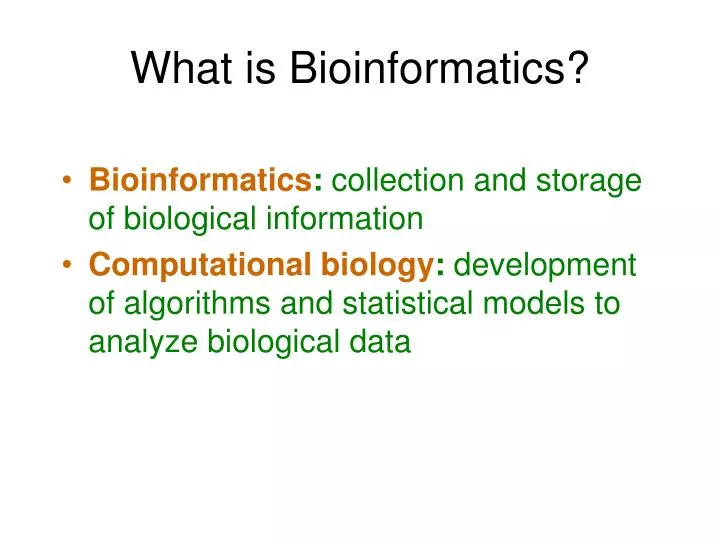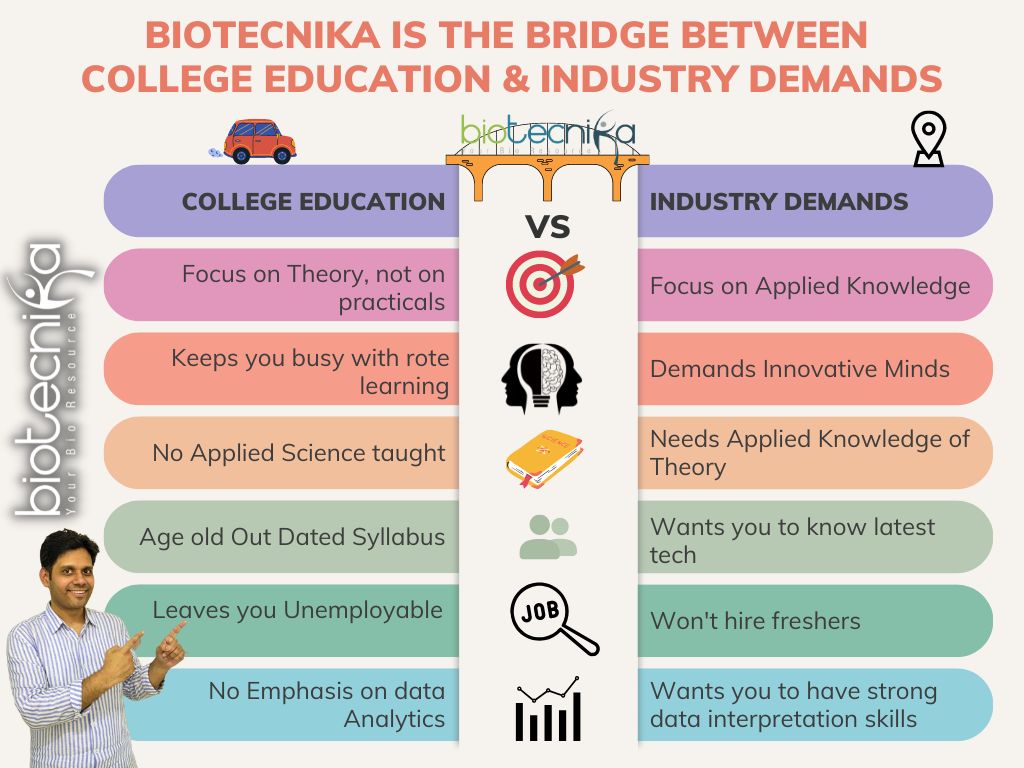The smart Trick of Bioinformatics Tutor That Nobody is Talking About
The smart Trick of Bioinformatics Tutor That Nobody is Talking About
Blog Article
What Does Bioinformatics Tutor Do?
Table of ContentsThe Main Principles Of Bioinformatics Tutor What Does Bioinformatics Tutor Do?Bioinformatics Tutor Things To Know Before You BuyMore About Bioinformatics TutorAbout Bioinformatics Tutor
Preliminary task advancement is rather taxing, as it entails cautious preparation of the subject, structuring of deliverables, and consideration of the abilities and experience degrees of individuals. When a job has been plainly defined and carried out, it has the potential to be reused in future sessions with only small alterations to show updates in the area or suit distinctions in participant histories. This makes project-based finding out a sustainable and efficient mentor approach in the lengthy run, especially in quickly developing self-controls like bioinformatics.To make certain continuity and reproducibility of knowing, supplying shared laboratory note pads-- either digital or physical-- is vital. These notebooks offer as collective logs where trainees can tape-record their progression, code, approaches, and results throughout the training course. Not only do they reinforce understanding by encouraging documentation and reflection, but they additionally serve as post-course reference materials that individuals can speak with in future study or academic jobs.
Mentors play a vital role in the success of project-based courses. Preferably, coaches must be active researchers with a thorough and updated understanding of both the academic structures and practical applications of bioinformatics in their corresponding techniques. Their capability to bridge complex ideas and real-world application is important in helping trainees browse the obstacles of interdisciplinary study. Moreover, coaches also function as function models and motivate students to proceed pursuing professions in computational biology and relevant areas.
Some Ideas on Bioinformatics Tutor You Need To Know
An additional trick aspect of the learning procedure is offering participants the opportunity to present their job to others, especially to a target market beyond their immediate job group. Final discussions or mini-conferences permit trainees to express their searchings for, obtain positive comments, and gain confidence in interacting clinical content. This discussion element is usually a preferred amongst students, as it confirms their efforts and highlights the real-world importance of their job.
The performance of this method was shown by the extremely positive responses obtained after the first training course was used. The success motivated repeat offerings of the exact same course layout in 2015 and 2016. Each version of the program was fine-tuned based upon participant responses and progressing ideal practices in rearing. These adaptations ensured that the core goals-- hands-on understanding, partnership, and applied analytical-- continued to be undamaged while increasing the deepness and breadth of subjects covered.
A notable visualization that captured participant belief was a word cloud created from responses to the 2014 end-of-course survey. Individuals were asked, "What was the most effective part of the course?" and their responses were compiled into a visual word cloud. In this depiction, the size of each word suggests how regularly it was discussed, with words like "hands-on," "collaboration," "real-life issues," "support," and "interactive" appearing most plainly. This visual comments strengthened the program's focus on experiential knowing and coach support.
The payments of people such as Rustici, G., Orchard, S., Cowley, A., and Twells, R., in addition to various other participants of the EBI user-training-working group, Website contributed in fine-tuning the training course framework and material. Their understandings aided form a versatile and inclusive version that can be adapted to numerous institutional and regional contexts.
How Bioinformatics Tutor can Save You Time, Stress, and Money.

Jones, Rasmussen, and Moffitt (1997) also advocated for interdisciplinary understanding via collaborative task work, noting its capacity to simulate professional settings and prepare trainees for future scholastic or market functions. In a thorough testimonial, Thomas (2000) analyzed several studies on PBL and ended that trainees not only perform well academically but likewise develop a much deeper understanding of the subject issue and boosted synergy abilities.
In the context of bioinformatics education, innovative strategies like class video games and simulation-based training have additionally been used. For example, Schneider and Jimenez (2013) introduced the use of interactive video games to teach organic data assimilation, making it possible for students to realize complicated concepts through experiential knowing. This sort of gamification matches the hands-on knowing highlighted in project-based programs by presenting a component of enjoyable and competitors, which can further enhance involvement.
Returning to the his comment is here training course discussed here, the lessons gained from the execution of project-based understanding in a bioinformatics establishing have wider implications for other STEM areas. The methodology highlights not simply technical effectiveness, yet likewise communication, cooperation, and essential reasoning-- abilities that are progressively valued in both academic community and industry.
The Main Principles Of Bioinformatics Tutor
The scalability of the training course layout also makes it a sensible version for other institutions. With appropriate modification based upon neighborhood demands, offered sources, and participant profiles, the structure can be duplicated or adjusted for usage in various other clinical domains. In addition, the incorporation of structured mentorship and evaluation methods assists make certain constant high quality and quantifiable discovering results.

Finally, project-based understanding in bioinformatics offers an effective strategy to mentor complex, interdisciplinary material in a way that is both easily accessible and intellectually boosting. By stressing collaboration, useful application, and crucial inquiry, such efforts not just improve specific understanding however additionally add to the farming of a new generation of ingenious and skilled scientists.
Not known Details About Bioinformatics Tutor

Another trick aspect of the knowing process is supplying individuals the chance to offer their job to others, especially to an audience past their immediate task team.In the wider educational literature, project-based discovering (PBL) has been thoroughly studied and verified as an effective approach for promoting deep understanding, critical thinking, and transferable abilities. Adderley et al. (1975) stressed the worth of project techniques in greater education and learning, keeping in mind that they advertise active learning and autonomy. Schneider and Jimenez (2013) introduced the usage of interactive video games to educate biological data combination, allowing students to realize intricate concepts with experiential understanding.
Report this page